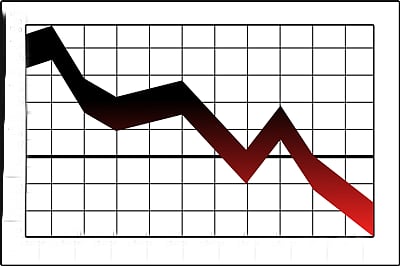Indian economic scenario is in an evolutionary state but going through a painful transition of persistent slowdown. Entrenched weak sentiments and subdued business confidence are worrisome. The icy shock of economic growth slowing to a seven-year low of 5% in April to June quarter from 8% a year ago supplemented by downward revisions of projected growth rates for FY20 by reputable research bodies have further dampened sentiments.
To place the blame of causing slowdown only on the government is not correct. Even private sector has been responsible. In fact, the financial system is at fault which was unable to check diversion of funds from banks and NBFCs towards purposes other than the ones stated. Recent RBI research shows even food credit getting diverted for non-agricultural purposes.
Slowdown is due to a multitude of causes, most prominent being slowing manufacturing sector and agriculture output. Large number of bad loans have led banks staring at big haircuts. Compliance requirements have become burdensome. Wages increase and jobs growth have been dismal. Consumer demand and private investment have weakened amid global trade frictions, regulatory uncertainties and depressing outlook of some non-bank financial companies. India was broadly pursuing a liberal path since 1991 but over the last couple of years, a shift has taken place from a liberalized mindset to a controlled perspective.
Economic slowdown along with fierce competitive pressures has become more difficult to tackle. Apple’s latest move is akin to Jio’s aggressive pricing strategy to take on rivals. Slowdown has encompassed one sector after another, more seriously the auto and real estate sectors. However, some segments like the e-commerce and services sector and select corporates have so far been bucking the trend. Most affected, the auto sector, has started shifting its strategy towards a new normal of shared mobility, providing leasing options to attract buyers and exploring export markets to make up for domestic losses. The emerging fast-evolving new economy is completely changing the rules of business.
All the above changes are rendering many aspects of the earlier scenario obsolete giving rise to new challenges. Besides, reforms in some well-intended cases like ‘demonetisation’ were poorly planned. Bold GST reforms brought a fundamental change in the indirect tax system but proved disruptive due to few wrong provisions. A beneficial economic churn was the passing of the Insolvency & Banking Code, which despite its transitional difficulties, is set to create a healthy credit culture.
Some crucial sectors like agriculture and rural development have not been adequately addressed even after over two decades of reform process. Rising trend of formalization of the economy, again a welcome move, has added to the transition difficulties. At the same time, detection of frauds and diversion of funds by borrowers have added to the already complicated situation. All these affected growth and creation of new employment opportunities. Vast diversity and fragmented nature of economy prevented clear signals to emerge.
The story is not complete. Global environment has been undergoing a big transformation on a scale and manner never witnessed before. The flip-flop nature of economic conflicts between the USA and China to gain economic supremacy has gone beyond trade. This has affected emerging developing powers like India in a significant way. Though in the short term, the accentuating tensions may provide advantages to India, the long run uncertainty prevails whether it turns out to be beneficial or not.
Above worrying portrayal requires well studied remedies notwithstanding Government being proactive on the economic front, especially in post-Budget period. Spate of reforms by Government and RBI are being announced one after another including both macro and sectoral reforms.
Corporate sector should also realize its responsibility to not always asked to be bailed out. A special brainstorming session of Parliament on the economic challenges being faced by the country and to come out with generation of actionable ideas is urgently required.
All stakeholders from the key sectors of the economy should discuss what is required to pull India out of the slowdown quagmire, placing it on a higher growth trajectory. Measures like skill development and green infrastructure need to be taken up expeditiously as expenditure on these carry high employment elasticities.
In sum, recent various stimulants including boosting exports, housing, rolling back surcharge on overseas investors, injecting Rs 70,000 crores in PSBs and initiating major exercise of bank mergers, have not been able to uplift dampened sentiments. A holistic and coherent approach to policy making is missing. Reforms are needed in faulty pricing and export-import policies for farm produce and outdated income tax law, labour and land-use policies. Vicious cycle of bailouts and debt defaults has to stop. There has to be debottlenecking of the flow of credit to vulnerable sectors including exports. In an era of global value chains, there has to be a simultaneous focus on exports, imports and FDI.
Given India’s present state and institutional constraints, it seems difficult to significantly accelerate economic growth, especially when it is apprehended that the world could be staring at a long era of deflation. Government has to understand well the causes of slowdown, which has to be addressed immediately lest it starts impacting India’s ambition of becoming a $5-trn economy by 2024.
The writer is an economist and a former director of ERTF.
-By Kiran Nanda










